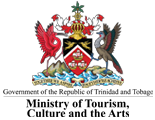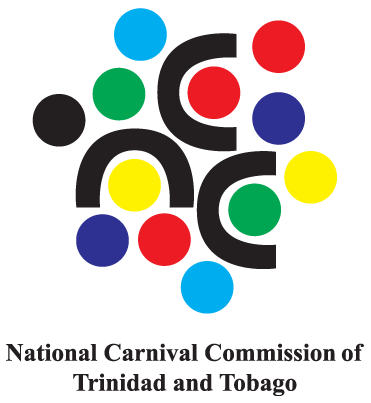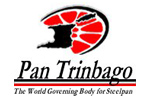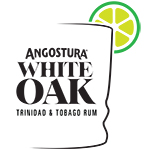A Meeting of Carnival Bandleaders
Bandleaders shown simulation of new mas route
Police: Not enough manpower
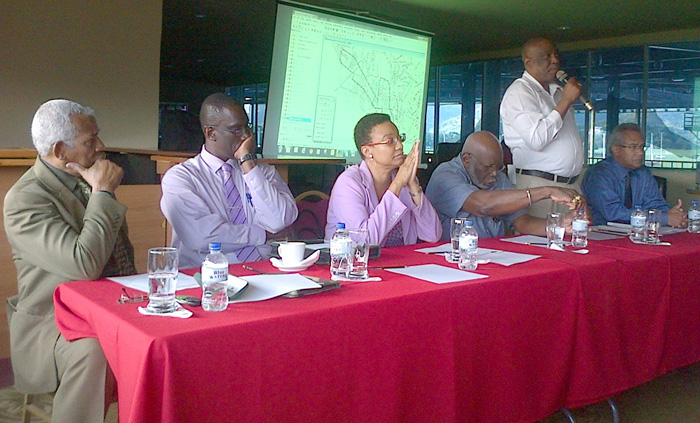
NCBA Chairman David Lopez addresses a meeting of Carnival bandleaders on January 8 at the VIP Room of the Grand Stand at the Queen’s Park Savannah. Seated at the head table are (from left) Brigadier General Carl Alphonso, Chairman of NCC's Operations and Infrastructure Committee; Neville Wint of NCBA; NCC Chairman Allison Demas; NCBA’s POBC chairman Sam Lewis; and, transport systems engineer Dr. Rae Furlonge.
Scores of Carnival bandleaders met at the VIP Room of the Grand Stand, at the Queen's Park Savannah on Wednesday (January 8, 2014) to discuss proposed changes to the Monday and Tuesday Carnival route.
The meeting was convened by the National Carnival Bands Association (NCBA) and facilitated by the National Carnival Commission.
Bandleaders heard proposals for a new Carnival parade route.
The session was led by NCBA-POBC chairman Sam Lewis, who asked participants to give the proposals an unbiased ear, and serious consideration:
"There will be challenges and differences of opinion," he said, but our aim is not to find fault but to find solutions."
He said the goal was a congestion-free parade by 2015,
NCC Chairman Allison Demas said she was happy that NCC had been asked to facilitate in the attempt to meet the needs of all stakeholders, including bandleaders, masqueraders and spectators.
Demas said NCC had been in discussions with members of Cabinet, Police, Fire, and others to determine the best route.
She said NCC had commissioned
C&H Associates and Dr. Rae Furlonge, Transport Systems Engineer, to help address the "perennial problem" of congestion on the road on Carnival days.
She said NCBA had gathered critical data over the years and had agreed to provide it to C&H under a confidentiality agreement, which would also be used to help them devise solutions.
Demas said they needed the bandleaders' feedback.
She added that security considerations were also being taken into account and Brigadier General Carl Alphonso was the Chairman of NCC's Operations and Infrastructure Committee.
NCBA President David Lopez said consultations on a new proposed route had been taking place since July, 2013.
He said, "Carnival belongs to all of us," and "we need to work together" to improve the parade.
He thanked Demas for taking on the proposal and said he looked forward to positive contributions from all concerned.
'Transport issue'
C&H Director Derek Hamilton said the firm had viewed the route congestion as being akin to a transportation issue, with the mas bands as trains with carriages (sections) along a track system.
Hamilton suggested the route should be extended to contain the volume of bands, and that the parade should proceed in a clockwise rather than anti clockwise direction, to optimise efficiency.
C&H's Dr. Rae Furlonge said the route issue represented a major challenge and that two types of software had been used to model the system, "applying a scientific approach" to a traditional system.
Furlonge said that if all Carnival bands were lined up end to end, they could not all fit on the existing route.
Using a projector, he showed an animated simulation showing the movement of some 55 large, medium and small bands moving along the new, extended route, and crossing the Savannah stage from the western end.
He said the new system would provide more room in the lead-up to the stage, thereby easing blockages.
He said NCBA's data, including GPS information, had been received a few days ago and would be added to refine the simulated scenarios.
Hamilton stressed that they could not provide all the answers in one year, saying progress would be ongoing.
Furlonge predicted the new plan could reduce congestion by 25 per cent.
Bandleaders respond
Harts leader Luis Hart said better communication between police and bands was needed. He suggested that once police manage the flow of bands entering the stage, there will be no congestion problem. He said bands on the route needed to be prepared to move.
Reigning Joint King of Carnival Gerald Weekes asked who was ultimately responsible for the management of the route. He suggested a "sterilised" area without vendors or spectators, starting at Memorial Square.
Brig. General Alphonso said the communication issue was being addressed and that NCC had met with
National Security Minister Gary Griffith, regarding Carnival plans. He said police were to be more visible and for the first time aerial surveillance would be used to help manage the flow of bands.
Steven Ramsubag Ag Assistant Commissioner said they had examined the proposed route and found that they could not provide the manpower to police an extended area. He said they wished to support but they had to provide security for the entire country.
Weekes said what was needed was not more police but better management.
Bandleaders pointed out that changing the direction would mean going against the wind and would be hazardous to costumes and masqueraders, especially children.
They said with only 7 weeks until Carnival they were reluctant to consider such a major change.
Bandleaders said preparations and discussions must start much earlier. They said they would be willing to address the issue again after Carnival.
Participants agreed to meet again at the same venue on January 16 to finalise the route for 2014.








